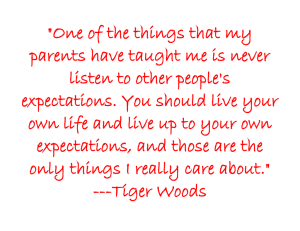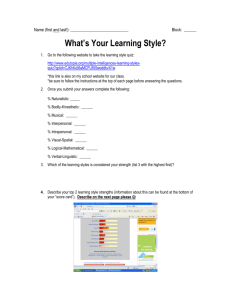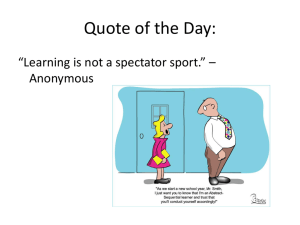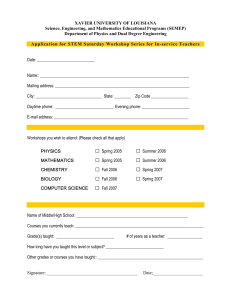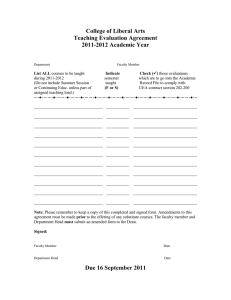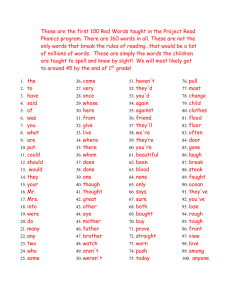Multiple Intelligences
advertisement
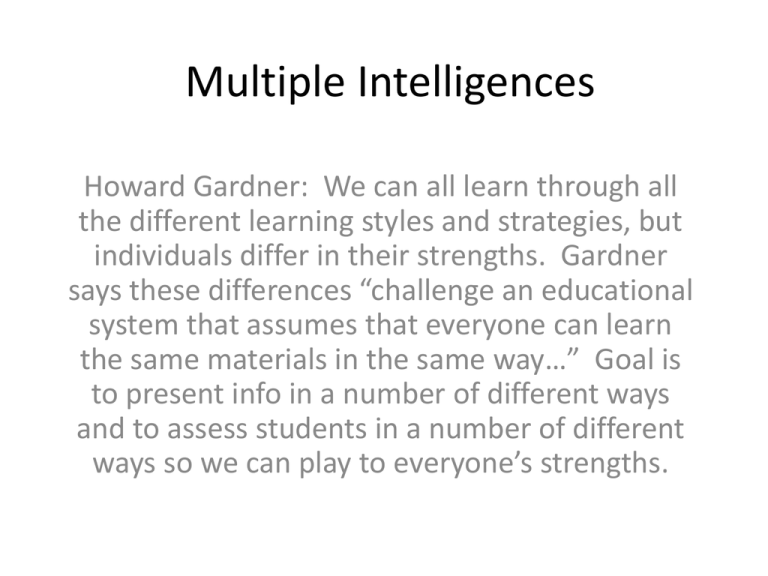
Multiple Intelligences Howard Gardner: We can all learn through all the different learning styles and strategies, but individuals differ in their strengths. Gardner says these differences “challenge an educational system that assumes that everyone can learn the same materials in the same way…” Goal is to present info in a number of different ways and to assess students in a number of different ways so we can play to everyone’s strengths. Verbal- Linguistic: • Think in words. Use words effectively. Enjoy reading, word games, and word puzzles. Enjoy writing or telling stories and poetry. Tend to be good writers or speakers or both. Use words to persuade, entertain, or teach. Logical-Mathematical: • Enjoy working with numbers. Strong ability to reason. Able to see patterns and relationships between things. Like to experiment, solve puzzles. Need to learn and form concepts before dealing with details. Can easily interpret data and analyze abstract patterns. Visual-Spatial: • Think and process info in pictures/images. Excellent fine motor skills. Very aware of their environment. Enjoy drawing, daydreaming, jigsaw puzzles, Legos, reading maps. Taught through drawings, verbal and physical imagery. Musical: • Sensitive to sounds in their environment. Think, feel and process through sound. May study better with background music. Superior ability to learn, compose, and perform music. Constantly hear musical notes/songs in their head. Can learn by turning lessons into lyrics, speaking rhythmically, tapping out time… Bodily-Kinesthetic: • : Body awareness. Learn through movement and touch. Harmony between body and mind. Strong ability to control body with grace, agility, and athleticism. Communicate well through body language. Taught through physical activity, hands-on learning, acting out, role playing. Interpersonal: • Natural ability to interact with, relate to and get along with others. Learn well through interacting with others. Tend to have many friends, empathy for others, and street smarts. Can be taught through group activities, seminars, and discussions. Good leaders. Natural ability to negotiate, persuade, obtain info. Intrapersonal: • Understands one’s own interests, goals, feelings, ideas. Shy. Needs time alone to process and create. Have wisdom, intuition, motivation. Strong will, confident. Taught through independent study and introspection. Most independent of the learners. Naturalistic: • Natural interest in the environment. Enjoy being in nature. Concerned about environment. Easily recognizes plants, animals, and rocks.
